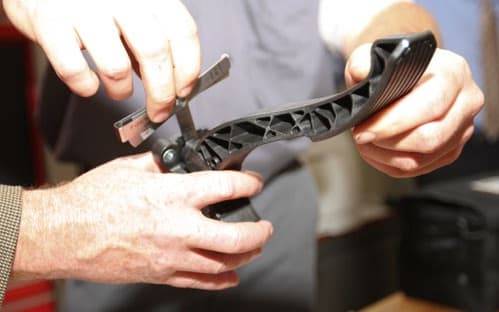Toyota Announces Settlement in Unintended Acceleration Lawsuit


Toyota announced today that it has come to a tentative settlement in an ongoing class-action lawsuit, which claimed owners were negatively impacted in the value of their cars due to Toyota’s unintended acceleration scandal in 2010. If accepted by the supervising judge in the case and all appeals are favorably resolved, the settlement will launch a new Toyota customer support program that will coordinate additional warranty coverage for certain vehicle parts, and the retrofitting of free brake override safety systems in non-hybrid cars that were subject to the floormat recall.
A cash payment will also be made to Toyota customers who sold or turned in leased vehicles in a specific period from 2009-10, or for whom the brake override system is not applicable. The settlement will also establish some driver education programs and fund additional research into advanced safety technologies. Overall, it is expected to cost Toyota nearly $1.1 billion, including legal fees associated with the case.
“This agreement marks a significant step forward for our company, one that will enable us to put more of our energy, time and resources into Toyota’s central focus: making the best vehicles we can for our customers and doing everything we can to meet their needs,” said Christopher P. Reynolds, group vice president and general counsel of Toyota Motor Sales, U.S.A, and chief legal officer of Toyota Motor North America. “In keeping with our core principles, we have structured this agreement in ways that work to put our customers first and demonstrate that they can count on Toyota to stand behind our vehicles.”
Toyota faced several lawsuits on many topics related to the 2010 unintended acceleration fiasco, which was traced to two main issues — floormats interacting with and trapping accelerator pedals and sticking pedals resulting from faulty internal components. Toyota was fined a record amount by the U.S. government for not disclosing these issues sooner, and many owners joined a class-action lawsuit brought by a coalition of state attorneys general against Toyota for “economic loss,” or the perceived drop in value that their cars suffered that they might not otherwise have seen if the problem had been handled differently. Toyota is confident that the issue is now being put to rest, and that the company will now be able to focus on more positive news, like new product launches.

Detroit Bureau Chief Aaron Bragman has had over 25 years of experience in the auto industry as a journalist, analyst, purchasing agent and program manager. Bragman grew up around his father’s classic Triumph sports cars (which were all sold and gone when he turned 16, much to his frustration) and comes from a Detroit family where cars put food on tables as much as smiles on faces. Today, he’s a member of the Automotive Press Association and the Midwest Automotive Media Association. His pronouns are he/him, but his adjectives are fat/sassy.
Featured stories



